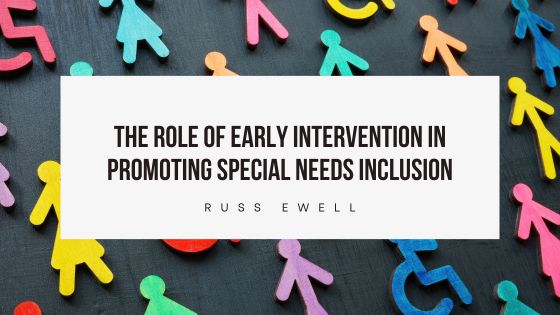Early intervention is critical in promoting inclusion for children with special needs. By addressing developmental delays and disabilities at a young age, early intervention programs provide children with the tools to participate fully in educational, social, and community activities alongside their peers. This helps improve individual outcomes and fosters an inclusive environment where diversity is celebrated, and all children can thrive. Here’s how early intervention promotes special needs inclusion and why it’s essential.
1. Identifying Needs Early for Better Outcomes
The earlier a child’s developmental needs are identified, the more excellent the opportunity to address challenges before they become more ingrained. Early intervention services, typically offered from birth to age five, aim to provide support during this critical development window. By identifying cognitive, physical, social, or emotional delays early on, specialists can create personalized strategies that help children develop skills necessary for success in school and life.
Research consistently shows that early intervention leads to better long-term outcomes. Children who receive early support for speech, motor skills, or behavioral challenges are more likely to develop the foundational skills needed to succeed academically and socially. This proactive approach reduces the need for more intensive interventions later and increases the likelihood that children can participate in mainstream classrooms and activities.
2. Building Skills for Inclusion in Educational Settings
One key goal of early intervention is to prepare children for inclusion in traditional educational settings. Children with special needs can develop the skills they need to function independently in a classroom, interact with peers, and engage in learning by providing therapies and support during the early years. For example, speech therapy may help a child develop communication skills that allow them to interact more effectively with classmates. In contrast, occupational therapy may enhance motor skills necessary for tasks like writing or using classroom tools.
Including children with special needs in general education classrooms benefits all students. It fosters a sense of community, promotes empathy, and teaches children the value of diversity. By providing early intervention, educators and parents can work together to ensure that children with special needs have the tools to succeed alongside their peers.
3. Empowering Parents and Caregivers
Early intervention doesn’t just benefit children—it also empowers parents and caregivers. Parents play a critical role in their child’s development, and early intervention programs often provide them with the resources, strategies, and support they need to be effective advocates and educators for their children. Whether it’s learning how to implement therapeutic exercises at home or navigating the special education system, parents equipped with knowledge and tools can help promote inclusion for their child.
This empowerment extends to other caregivers, including teachers and daycare providers, who are essential partners in a child’s developmental journey. Providing training and resources, early intervention programs ensure caregivers understand how to support the child’s growth in various settings, reinforcing the skills learned during therapy sessions.
4. Promoting Social Inclusion
In addition to preparing children for academic success, early intervention promotes social inclusion. Children with special needs often face social challenges, such as difficulty making friends or feeling isolated. Early intervention programs focusing on social skills development help children learn how to navigate these interactions positively.
Whether through group therapy, play-based learning, or peer interaction, early intervention teaches children essential social skills, such as turn-taking, sharing, and expressing emotions. These skills help children build relationships, develop self-confidence, and engage more in group activities. By promoting social inclusion from an early age, children with special needs can grow up feeling accepted and valued within their communities.
5. Long-Term Impact on Inclusive Societies
The benefits of early intervention extend far beyond childhood. When children with special needs receive the support they need early on, they are more likely to grow into adults who are confident, independent, and capable of contributing to society. Moreover, by fostering an inclusive environment in schools and communities, early intervention helps shape societal attitudes toward individuals with disabilities.
By promoting inclusion from an early age, society becomes more accepting of diversity, and individuals with special needs are considered integral members of their communities. This shift in perspective is essential for building a future where inclusion is not just a goal but a reality for all.
Conclusion
Early intervention is a powerful tool for promoting inclusion for children with special needs. By addressing developmental challenges early, building skills for school readiness, empowering parents and caregivers, and fostering social inclusion, early intervention sets the stage for long-term success. More importantly, it helps create a more inclusive society where all children, regardless of their abilities, can learn, grow, and thrive together.

